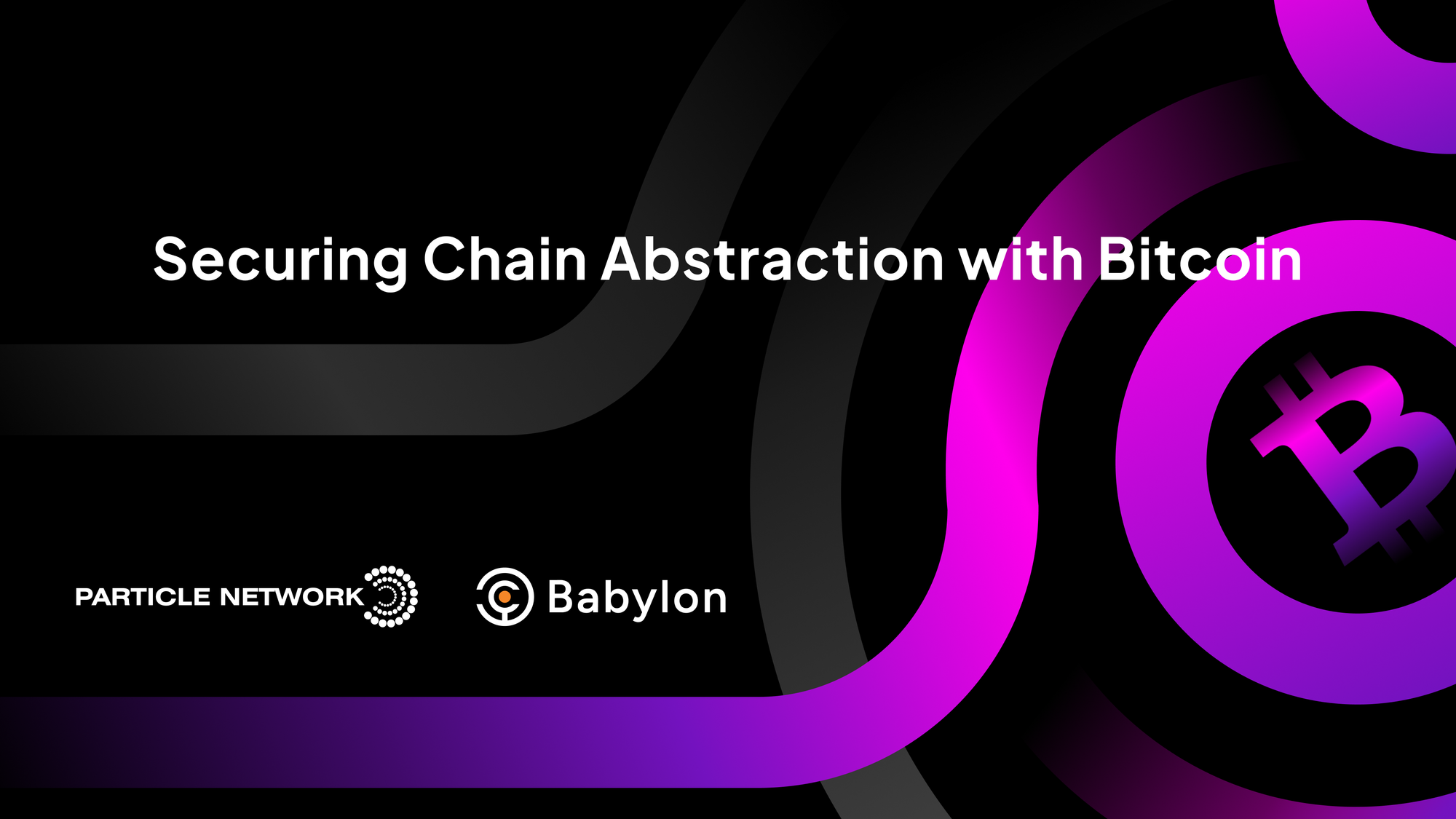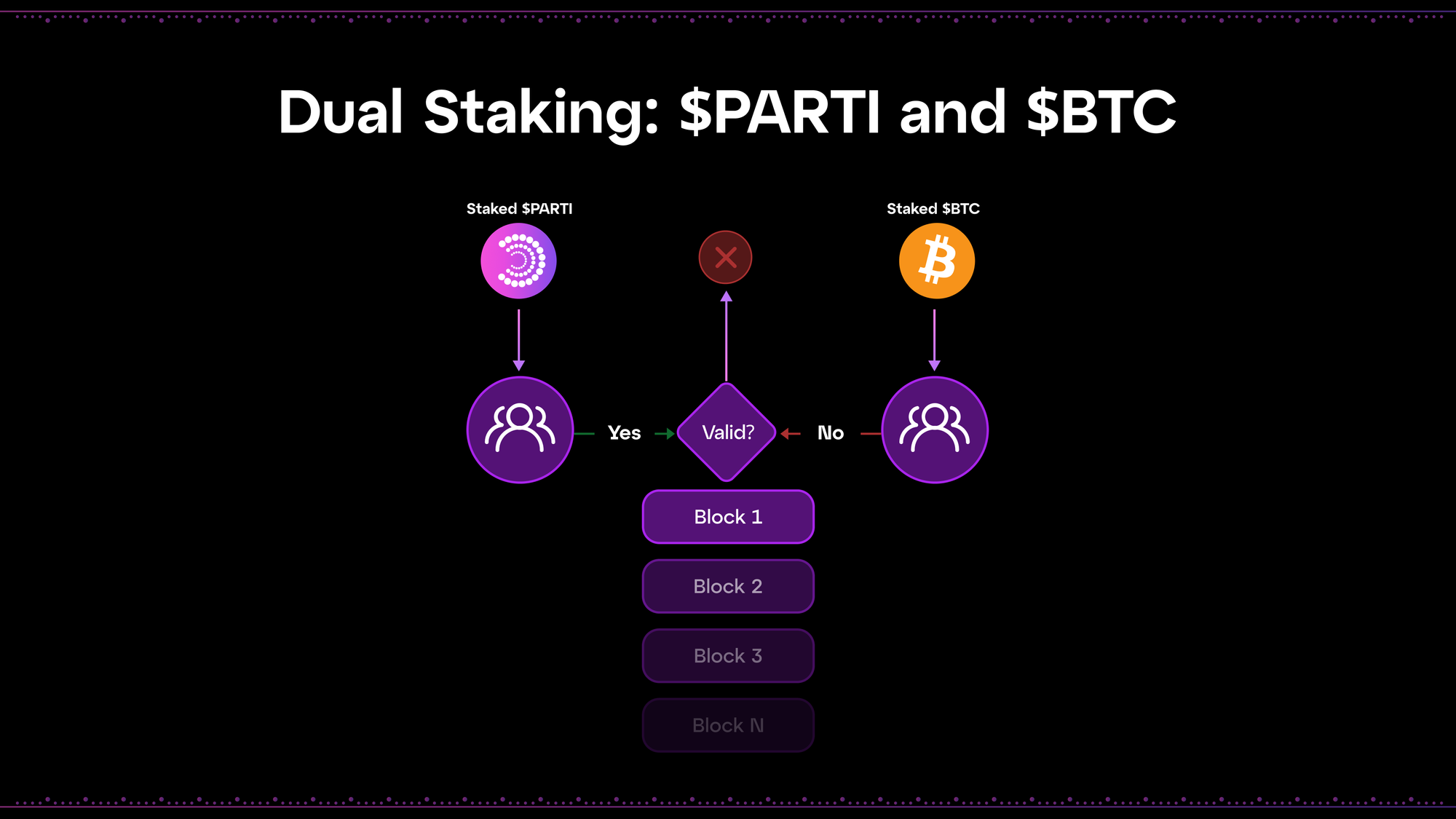We're Joining Forces with Babylon to Secure our L1!

Table of Contents:
New Proof-of-Stake chains face a critical, yet often overlooked, security risk due to their native tokens’ nature.
These tokens, typically the sole assets securing the network, are often subject to high volatility, which can reduce the security and integrity of the chain alongside its validator set. Meanwhile, as the most economically powerful cryptocurrency, Bitcoin has proven to be the gold standard for economics, decentralization, and security –two factors that can now be extended onto other networks due to innovations such as Babylon’s Bitcoin staking.
Realizing this, Particle Network is leveraging Babylon’s Bitcoin staking to enable our modular L1’s Dual Staking security model, a key component of our vision of simplifying the user experience of Web3. Within Dual Staking, each transaction is validated by both native token stakers and BTC stakers to create a robust security framework, addressing the inherent challenges of bootstrapping a PoS network.
Here’s everything you need to know about this first-of-its-kind alliance.
How Babylon enables Bitcoin staking
Through Babylon’s Bitcoin staking protocol, stakers can lock their BTC in a self-custodial staking contract without leaving the Bitcoin Mainnet. This locks their stake for a period of their choice. Simultaneously, Babylon creates a temporary key that has two functions:
- It can sign voting transactions, validating or not any block of the specific PoS chain.
- It can also slash a large fraction of their stake in case of malicious behavior.
Staking yield is accumulated as the validator participates in the PoS algorithm. Users can withdraw their BTC at any point.
Particle Network & Babylon: Uniting forces

Particle Network is tackling Web3’s fragmentation of users and liquidity across ecosystems by enabling users to have a single address, balance, and interaction point across all blockchains. This is made possible by a modular L1 Cosmos chain, which acts as the coordinator of users’ accounts and balances across chains, creating the experience of chain abstraction.
Particle’s implementation of Dual Staking for our native token $PARTI, alongside BTC, ensures that the infrastructure supporting the future of chain abstraction is built on an unshakeable foundation. As the network aims to power chain abstraction for the larger ecosystem, this security model provides the security assurances required to act as a high-speed, robust execution environment that relays transactions across chains.
Thanks to this integration, Babylon will play a vital role in achieving chain abstraction, directly powering Particle Network’s security model and, in turn, the resilience of chain abstraction as a whole. Together, Babylon and Particle Network can usher in the next generation of Web3 UX through Universal Accounts secured by BTC –all while pioneering a novel security system.
Particle Network's Wallet Abstraction solutions are 100% free for developers and teams. By integrating them, you can set your project in a path to leveraging chain abstraction.
About Particle Network

Particle Network powers chain abstraction, addressing Web3's fragmentation of users and liquidity. This is enabled by Particle's Universal Accounts, which give users a unified account and balance across all chains.
Share this article
About the author(s)


